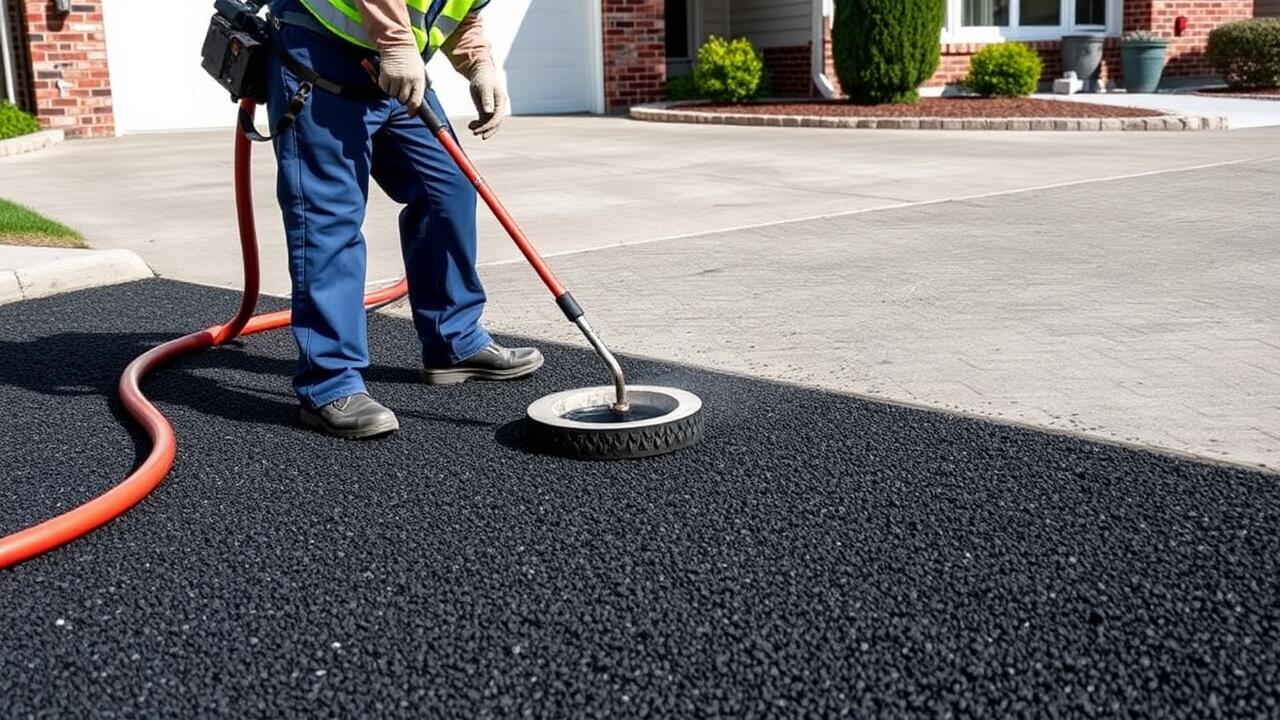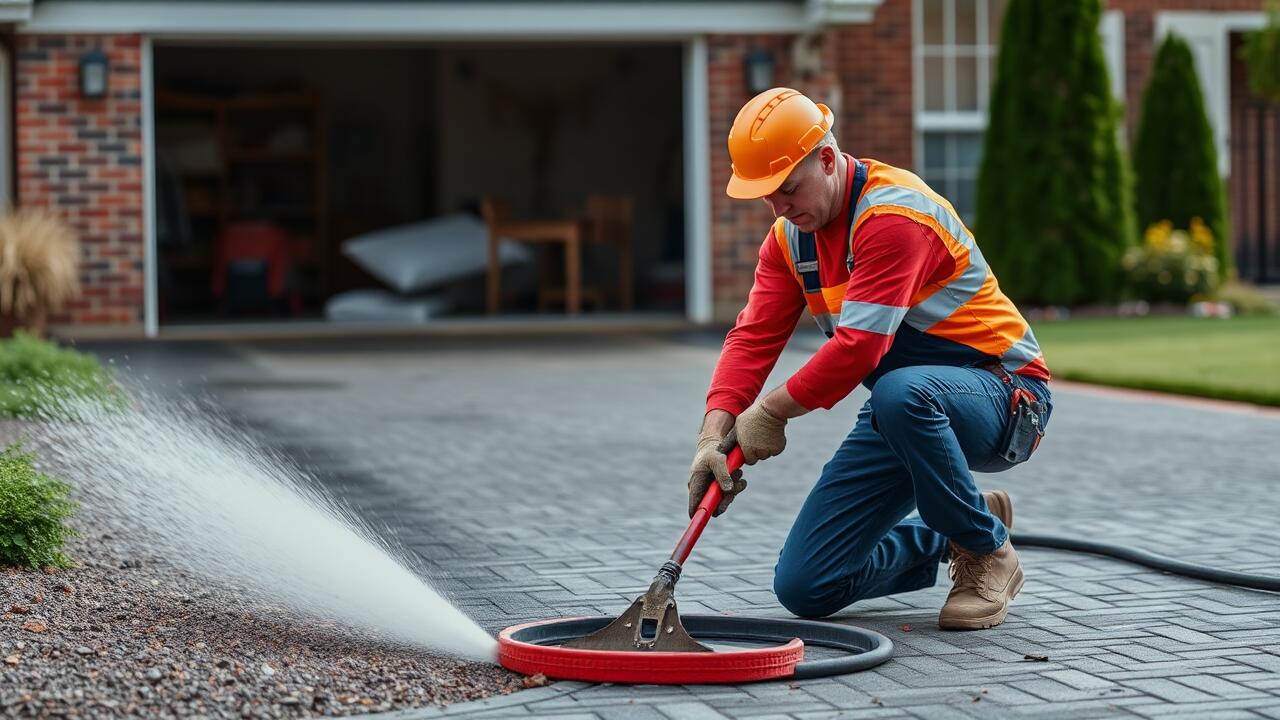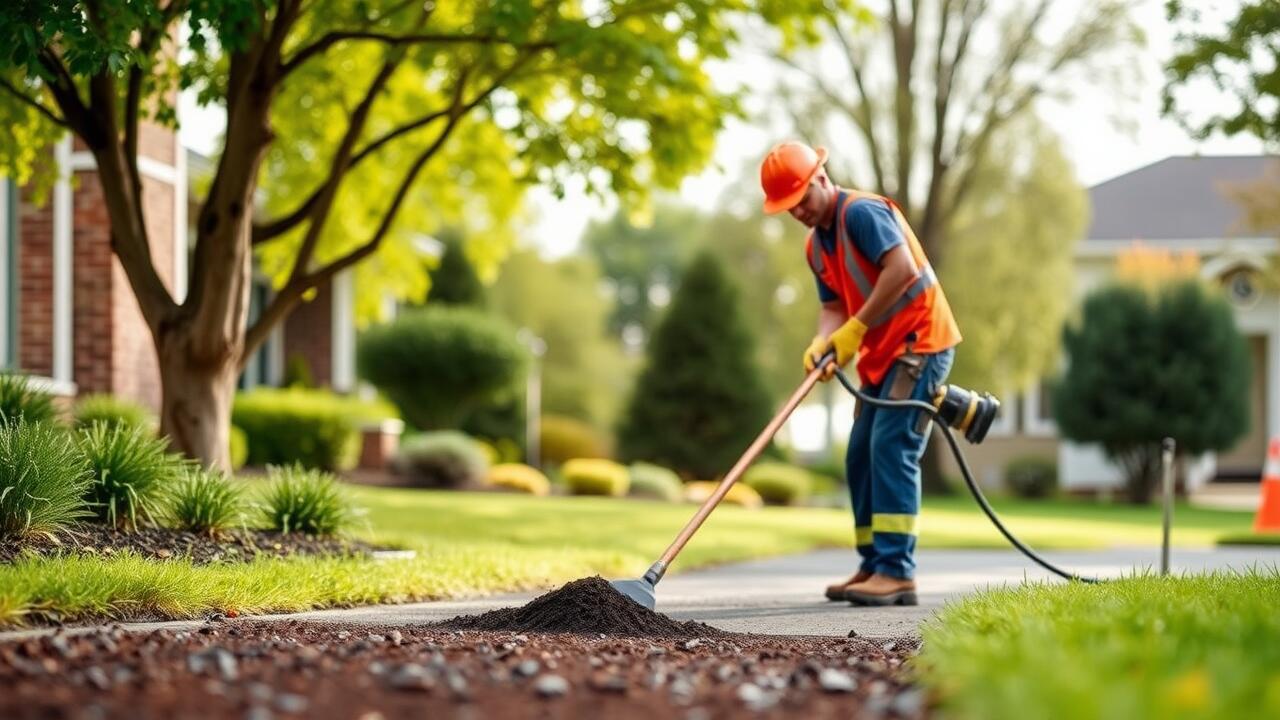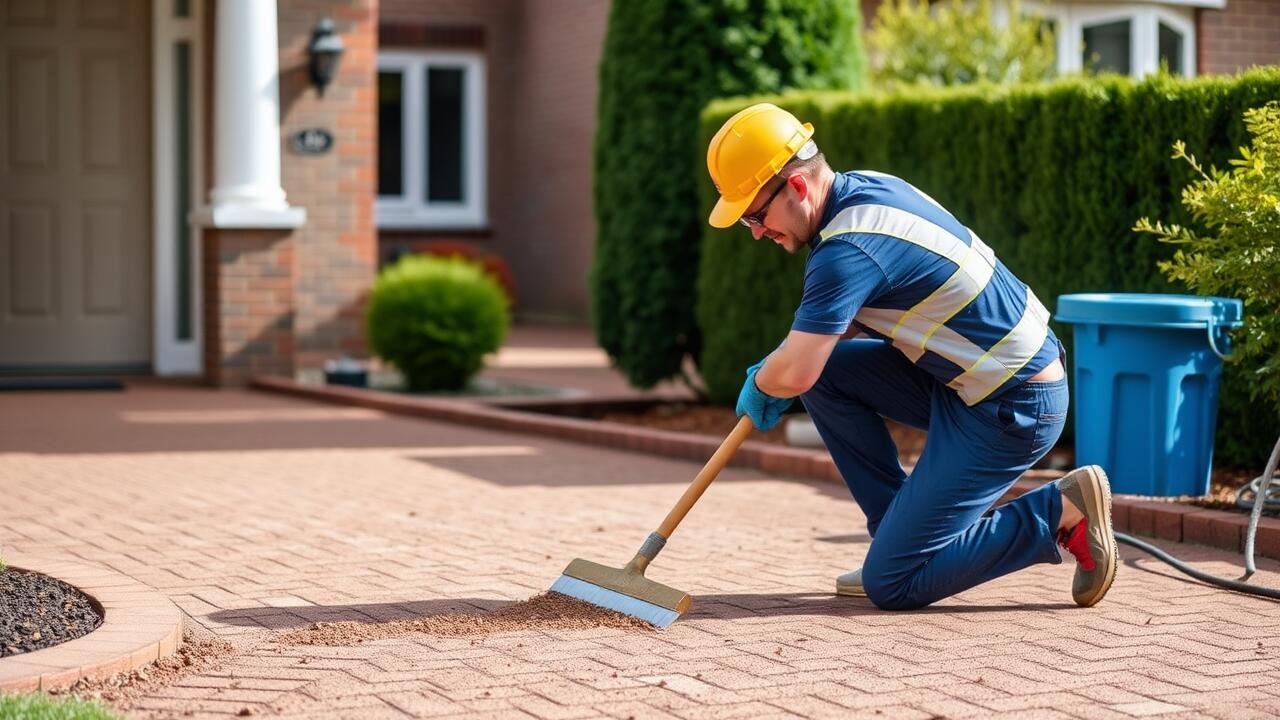
Environmental Impact of Materials
The environmental impact of driveway materials is an important consideration for homeowners. Asphalt is derived from petroleum, contributing to issues such as fossil fuel depletion and greenhouse gas emissions during production. Additionally, asphalt can release volatile organic compounds (VOCs), which may affect air quality. In contrast, concrete, made from cement, aggregates, and water, has a lower carbon footprint due to its longer lifespan and potential for recyclable materials. Though concrete's production also generates carbon emissions, its durability can mitigate its overall environmental impact.
When looking for "Driveway Installation near me," homeowners might evaluate how the materials used align with their sustainability goals. Many regions are promoting the use of eco-friendly materials and techniques. Permeable concrete options, for example, allow rainwater to be absorbed and reduce runoff, contributing positively to local ecosystems. Both materials have unique environmental considerations, making it essential for homeowners to weigh their options carefully based on local availability and environmental regulations.
Comparing Sustainability of Asphalt and Concrete
Asphalt and concrete each have distinct environmental footprints. Asphalt is derived from petroleum, a non-renewable resource that can contribute to greenhouse gas emissions during production. However, it is often noted for its potential to be recycled numerous times. Concrete, on the other hand, uses abundant materials like limestone and clay. Its production is energy-intensive and generates significant carbon dioxide. When considering sustainability, both materials present challenges requiring careful evaluation.
When researching options for "Driveway Installation near me," homeowners should consider not just the immediate costs but also the long-term environmental impact. While asphalt may offer easier recyclability, its petroleum base raises concerns regarding sustainability. Conversely, concrete's durability can provide a longer lifespan, potentially reducing the need for frequent replacements. This durability, however, comes at the cost of energy usage during manufacturing. Understanding these factors aids in making informed decisions aligned with sustainable practices.
Installation Time and Labor Costs
When considering driveway installation, both asphalt and concrete vary significantly in terms of installation time and labor costs. Asphalt driveways typically require less time to install, often completed within a day. The process is straightforward; contractors can lay the asphalt quickly, which minimizes disruption for homeowners. In contrast, concrete driveways often involve a longer curing time, which can extend the overall project timeline, especially if weather conditions are not ideal.
Labor costs can also differ based on the material used. Installing an asphalt driveway may generally require fewer labor hours, translating into lower labor costs. For concrete installations, the complexity and longer curing time could result in higher labor expenses. Homeowners seeking to compare options may search for "Driveway Installation near me" to find local contractors specializing in each material, helping them make informed decisions based on both time and budget.
Timeframe for Asphalt Driveway Installation
Asphalt driveway installation typically varies in duration based on several factors, such as the size of the area and weather conditions. Generally, a standard installation can be completed in a day, with the crew performing site preparation, laying the asphalt, and compacting the surface. However, larger or more complex driveways may require additional time for any necessary grading or drainage work. Homeowners should expect some disruption during this period, but the quick turnaround is one of the advantages of choosing asphalt over other materials.
After installation, the new asphalt surface usually needs a curing period of about 24 to 48 hours before it can be driven on. This brief waiting period is essential to ensure that the asphalt sets properly and achieves its optimal strength. For those seeking the best local options, searching for "Driveway Installation near me" can help find skilled contractors who understand the nuances of quick and efficient installations. Prioritizing local professionals can also streamline the process, ensuring a smooth project from start to finish.
Resale Value Considerations
The choice between asphalt and concrete for driveway installation can significantly influence a home's resale value. Potential buyers often consider durability and maintenance when evaluating properties. A well-maintained concrete driveway may be perceived as a more premium option due to its longevity and resistance to wear and tear. This perception can enhance the overall appeal of a home, making it stand out in a competitive market.
On the other hand, asphalt driveways are typically less expensive to install and repair, which can attract budget-conscious buyers. Their more straightforward installation process can be an advantage for those seeking immediate functionality without extensive upfront investment. Additionally, homeowners searching online for "Driveway Installation near me" may find varying prices and options, leading to different financial considerations depending on the material chosen.
Impact of Driveway Material on Home Value
The choice of driveway material can significantly affect a home's resale value. Many prospective homebuyers perceive concrete driveways as a sign of durability and low maintenance. Properties with well-maintained concrete driveways often garner higher offers, especially in competitive real estate markets. On the other hand, while asphalt driveways can be cost-effective, they may not hold the same appeal. A homeowner's decision on driveway material can send subtle signals about the care and quality associated with the property.
For sellers aiming to attract buyers, investing in the right driveway material becomes essential. In regions where aesthetic appeal matters, concrete may lead to a better financial return. Searching for "Driveway Installation near me" can help homeowners find local contractors who specialize in various materials and styles. Ensuring that a driveway complements the overall look of the home can make a noteworthy difference in attracting potential buyers.
FAQS
Which is generally cheaper to install, asphalt or concrete driveways?
Typically, asphalt driveways are less expensive to install than concrete driveways. The cost differences can vary based on location, but asphalt generally requires less material and labor.
How do maintenance costs compare between asphalt and concrete driveways?
Asphalt driveways usually require more frequent maintenance, such as sealcoating every few years, which can add to long-term costs. Concrete driveways are more durable and may require less maintenance over time.
Does one material offer better durability than the other?
Concrete driveways are generally more durable and can last longer than asphalt driveways, which typically have a lifespan of 15 to 20 years. However, asphalt is more flexible and may perform better in extreme climates.
What factors should I consider when choosing between asphalt and concrete for my driveway?
Consider factors such as initial installation costs, maintenance requirements, climate conditions, desired aesthetic, and potential impact on home resale value when choosing between asphalt and concrete.
Can the environmental impact of asphalt and concrete influence my choice?
Yes, both materials have different environmental impacts. Concrete generally has a larger carbon footprint due to the production process, while asphalt can often be recycled. Evaluating sustainability can help inform your decision.


